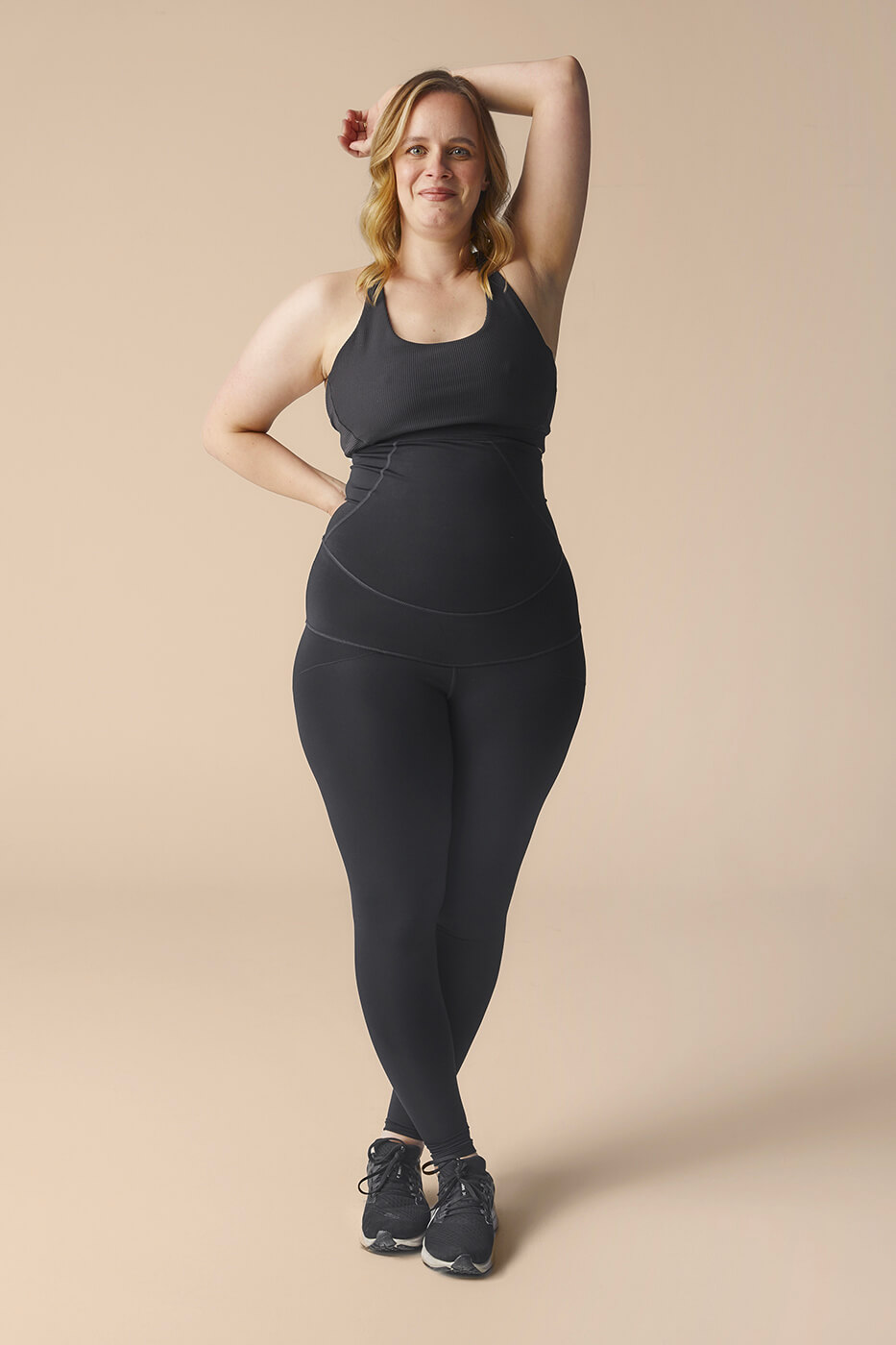By Kimberley Wright – Clinical Nutritionist & Co-Founder of FIT FAB MUM
When I found out I was pregnant for the first time, I was over the moon! So incredibly excited…… but at the same time, so overwhelmed!
I knew I wanted to be as fit and healthy as possible during my pregnancy, and I was thankful I had a great foundation & knowledge base to start from. But there is actually a lot of conflicting advice around, and it can all be pretty overwhelming. Once I started looking into what others recommended pregnant women eat / don’t eat, or how to exercise / exercises to avoid during pregnancy, I kind of wished I hadn’t!
So, in the interest of making it super easy to know which foods to include in your diet, and which to avoid (and most importantly – why!), I’ve outlined it for you all below. Following these simple principles will keep you healthy & happy during pregnancy – and beyond.
KEY NUTRIENTS TO INCLUDE IN YOUR DIET:
B group Vitamins – The B complex of vitamins are responsible for energy production, wound healing, mood support, and in particular B9 (also known as folate) is integral for the healthy replication of fast dividing cells (which is exactly what an embryo is!). The B group vitamins can be found in most animal products, however vitamin B9 is best sourced from leafy green vegetables. Separately, Vitamin B6 has been shown to decrease morning sickness/ nausea, and you can find it in meat, poultry, bananas, soy.
If supplementing with the B group vitamins, they’re best taken together as they work synergistically and this can aid in their absorption. Also aim for ‘activated’ or ‘methylated’ forms of the B group vitamins (B6, B9 & B12 specifically) as they are already in their ‘active’ form, meaning they don’t need to be acted on by any enzymes / go through any bodily processes to be able to work within the body.
Choline – you might not have heard a lot about this essential nutrient before, but I have a feeling that is all going to change! Similar to the B group vitamins, choline is required for healthy metabolism, and for the body to synthesize phospholipids which are vital for healthy cell membranes, for neurotransmitter synthesis and for modulating gene expression, cell membrane signaling, and early brain development. So you can see why this nutrient is key during preconception & pregnancy! Choline is in small concentrations in lots of things, but the best way to reach your daily intake is through 2 eggs (which will provide around 300 mg of choline). Other good sources are beef liver (though not a very popular choice), beef and roasted soybeans.
Omega-3 fatty acids – Omega 3 fatty acids provide stability to cell membranes (important for protecting eggs/embryos) and are integral for healthy neuronal development in the foetus. Be sure to eat oily fish 3 times per week for their omega 3 content. Tuna & salmon are popular choices, but sardines & mackerel are better, low-mercury, more sustainably fished choices.
Vitamin D – Did you know that there are Vitamin D receptors on the sperm head? Researchers are still unclear on the role Vitamin D plays in conception, however it appears it’s an important one! Following conception, Vitamin D plays a role in healthy embryonic implantation, and also regulates the transcription function of genes for angiogenesis (the formation of new blood vessels) in the embryo. Find it in egg yolks, cheese, sardines, mackerel, tuna, salmon.
Zinc – zinc is required for the development of a healthy immune system in the foetus, for cell division & growth,and it also plays a key role in mental health, gastric acid secretion and thyroid function. Zinc deficiency is the most common nutrient deficiency in children. Meat is a great source of zinc, as is pepitas (pumpkin seeds), and nuts. Oysters are also a great source of zinc, but best to enjoy these after bub arrives!
Selenium – Selenium is an often overlooked nutrient, but it plays an integral role in the healthy formation of the thyroid gland in the embryo and the production of thyroid hormones. The thyroid gland regulates metabolism, growth & development.
Selenium is toxic in high doses so it’s best to obtain it from food – 1 Brazil nut per day is enough to meet your nutritional needs! Other sources include mushrooms, beans, & sunflower seeds.
Magnesium – requirements for this essential mineral are dramatically increased during pregnancy. Magnesium is required for energy production, and also supports a healthy nervous system for both mum and bub. It also promotes relaxation of both the skeletal & smooth muscle – you might notice toward the end of pregnancy leg cramping & restless leg syndrome in particular becomes common when magnesium stores are often depleted. The best sources of magnesium are leafy green vegetables and beets, but it’s actually very difficult to obtain adequate magnesium from the diet – supplementation is required in most cases.
Iodine – Iodine is integral for healthy thyroid formation. A deficiency leads to cretinism in the foetus which cannot be reversed by post-birth supplementation. Cretinism is a congenital iodine deficiency which causes stunted physical and mental growth.Find iodine in fish & shellfish, just be sure to consume all sources well cooked & while still hot.
Iron – Iron is required for the haem portion of hemoglobin, which transports oxygen throughout the body via the blood. During pregnancy, your needs increase 2-3 fold, as your blood volume increases by approximately 50% (and your heart increases in size by up to 12% to pump all this extra blood!). It is important to have ample iron stores for your own use and also for your baby's creation of blood and enzymes. Iron also plays a role in cell differentiation (important during an embryo’s development) and also for neuronal / cognitive development in the foetus.
Anaemia is actually surprisingly common in pregnancy and can lead to a range of complications, so it’s important to ensure your intake remains optimal from the outset.
CoQ10 – is the source of cellular energy. It assists in the maturation of oocytes (the cells that become healthy eggs) and is required for the formation of a healthy embryonic cardiovascular system. It can also be helpful in supporting you through labour & birth, so make sure you;’re getting enough throughout your entire pregnancy.
Fibre – Pregnancy hormones can reduce gastric motility – meaning movement of food through the digestive tract slows. This can lead to digestive pain, constipation, increased risk of hemorrhoids and varicose veins. The aim of increasing fibre is to ensure the digestive tract keeps working efficiently.
Water – Increasing water is important for a number of reasons. First of all, to help keep everything moving through the digestive tract (fibre soaks up water, so you need to increase water intake any time you increase fibre). Your blood is also made primarily from water. Given the increased blood volume during pregnancy, it’s important to increase your water intake.
If you weren't aware, a foetus will take what it needs nutrient wise from the mother first, and then the mother is left with whatever nutrients are left. I think you will all agree that this is evolution at its finest, protecting our bubs from the get-go! But remember that YOU are so important in this process too – your health matters and taking care of YOU ensures you are able to support your bub – from growing in your tum, to joining us all earthside.
Now on the flip side, there are some foods & supplements that you will want to be mindful of until after delivery:
SUPPLEMENTS:
Vitamin A - Vitamin A/retinyl/retinol should NOT be supplemented during pregnancy. High dose Vitamin A is teratogenic (meaning can cause birth defects) and needs to be avoided your entire pregnancy. Vitamin A from food is ok within normal daily limits. Cod liver oil has a high Vitamin A content.
Vitamin E - Excess Vitamin E is thought to increase the risk of premature rupture of the amniotic sac. Vitamin E supplementation is best avoided, but normal intakes from food are considered perfectly safe.
FOOD:
Food safety is extremely important during pregnancy, as you want to avoid any of these nasties:
Listeriosis – Caused by the listeria bacteria, which can survive at refrigerated temperatures (unlike many bacteria). Listeria is particularly nasty as it is 10 x more likely to affect pregnant women and can cause miscarriage, premature labour, low birth weight and infant death, as well as paralysis, kidney impairment, seizures, blindness and more.
Avoid common sources including deli meats, pre-cooked then chilled shellfish, unpasteurised dairy products, and also fruit & vegetables that have not been washed adequately.
Salmonella – salmonella causes gastroenteritis. In a non-pregnant person, this can be easily treated with antibiotics. However, the antibiotics used for salmonella cannot be used in pregnancy (as it causes birth defects). Salmonella can cross the placenta, causing severe disease, organ failure and foetal death.
Toxoplasmosis - caused by the parasite Toxoplasma gondii, which can be found in raw / undercooked meats and seafood, kitty litter, contaminated water, dust, dirt & soil. A great excuse to get out of changing that kitty litter!
Methylmercury - mercury toxicity can cause blindness, deafness, growth problems, intellectual disabilities and impaired lung function – it’s highly toxic to a developing nervous system. It’s most commonly found in large, predatory fish like shark, marlin, swordfish, tuna, and for this reason we recommend consuming no more than 3 x 90 g tins of tuna in a week, particularly during pregnancy.
SUMMARY
Foods to be mindful of:
- Deli meats – ham, salami, devon, chicken loaf, cold meats, etc.
- Stuffing from BBQ chickens
- Raw meat or seafood
- Pate or meat spreads
- Cooked, then chilled seafood
- Sushi
- Soft & semi-soft cheeses (unless cooked and served still hot)
- Processed cheese like cream cheese (cottage cheese are okay if stored properly and used within 2 days of opening)
- Soft serve ice cream/yoghurt/sorbet
- Fried ice cream
- Raw milk
- Poached eggs or raw eggs used in sauces, mayonnaise, chocolate mousse etc
- Pre-prepared salads (including fruit salad)
- Sprouts of any kind – alfalfa, broccoli, mung beans etc
- Alcohol
A couple of additional things to consider:
Protein Powders:
I’m often asked about the use of protein powders in pregnancy (many say to consult your doctor before use if pregnant on the label). Of course getting your protein from whole foods is the ideal, but as a practical busy mum, I love the ease of using a protein powder occasionally in a smoothie when I’m on the go, to ensure all three macronutrients are included in my meal.
However not all powders are created equal, so you want to ensure your protein powders do NOT include: caffeine, Green tea extract, ginseng, guarana, milk thistle & creatine. These ingredients are not safe for use during pregnancy or lactation, as they upregulate liver function and increase the rate of phase 1 detoxification.
If you do include protein powders in your pregnancy diet, opt for powders that contain no more than 25 gm protein per serve (your body will struggle to absorb more than that in one go, and additional protein must be processed, putting additional strain on the kidneys), and use those that contain only natural ingredients. I also recommend no more than 1 serving per day.
Fermented foods:
Fermented foods like kombucha, kimchi, sauerkraut & kefir are great for supporting gut health, however during pregnancy, hormonal changes (increased oestrogen) means thrush is twice as common in pregnant women than non-pregnant women.
For those suffering with thrush, cut fermented foods from your diet until the overgrowth of candida has been managed (speak to your nutritionist or naturopath for a personalised action plan).
Essential Oils:
We love our essential oils for relaxation and mood management, however Lavender is best avoided during Trimester 1 (linked to breakthrough bleeding) as well as Jasmine & Clary Sage (which are uterine stimulants), Camphor & Wintergreen.
Herbal Supplements:
Unless prescribed by a qualified naturopath during your pregnancy, herbal supplements are best avoided.
SO WHAT ARE 5 THINGS YOU CAN START DOING NOW TO SUPPORT YOUR HEALTHY PREGNANCY?
- Include a wide variety of fresh fruit & vegetables in your diet (lots of vitamins, minerals & fibre!)
- Increase your water intake to 3L per day (increase by an extra 100mls per day until you get there)
- Take a good quality pregnancy supplement throughout pregnancy (and into the postpartum period)
- Take your time to understand why certain foods are not recommended in pregnancy – so you can make your own (informed) decisions
- And finally, listen to your body. If you feel you could benefit from personalised dietary advice seek help from a qualified nutritionist or naturopath.
hello@fitfabmum.com.au
www.fitfabmum.com.au
www.facebook.com/fitfabmumtribe
www.instagram.com/fit_fab_mum





